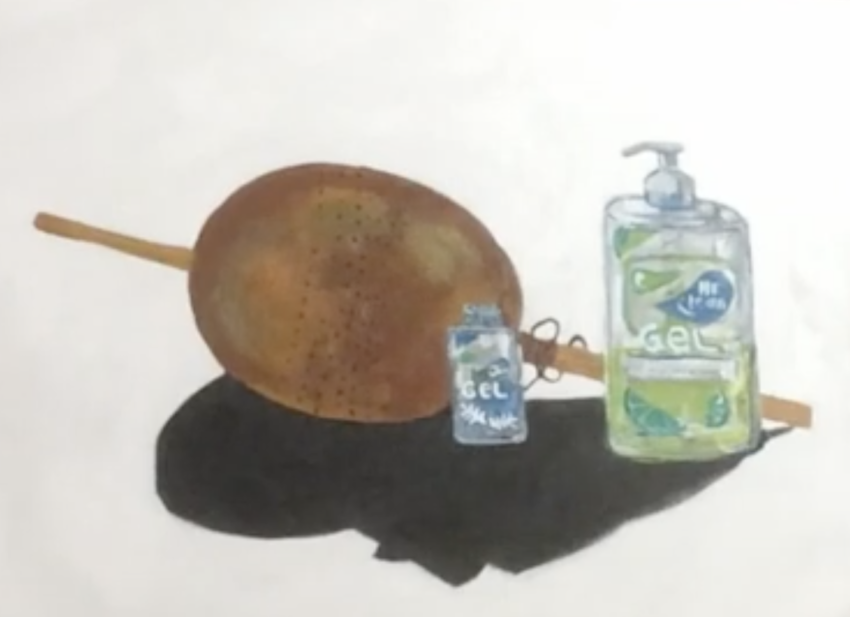Denilson Baniwa is one of the artists contributing to Extracting Us , an online exhibition and conversation on the feminist political ecologies of extractivism. In this video he discusses his activist painting practice and his experiences as an Indigenous person in Brazil at the time of COVID-19.
Transcript
Hi! I am Denilson, I am an Indigenous person of the Baniwa people, Rio Negro, Amazonas. I’ve come here today to introduce myself and talk a bit about my work really quickly.
What is the experience like – of creating art on the frontlines, of using art as resistance? And what is it like now during the pandemic?
It’s difficult to say what it’s like right now during the pandemic because we find Indigenous people and artists, in all reality, working at the frontlines forever in a range of types of crises, you know? Economic crises, crises of violence, social crises, that always affected Indigenous populations in Brazil. I think what has changed now is the impossibility to travel, to have interaction amongst ourselves and with communities and with other Indigenous peoples.
We had plans for 2020, to hold seminars, discussions, meetings, exhibition projects, that all had to be postponed or cancelled because of COVID-19. In terms of my work, of it being activist work, of being on the frontlines as a communication, as a means of communication for the Indigenous movement. I see it very much as a work of alterity, of otherness, of how to place myself in the world trying to understand these two worlds that I know well. The Indigenous world, the world of my peoples’ villages, of my culture – and the non-Indigenous world where I studied and currently live, where I have social relationships. In my art, I reflect very much on this, of certain types of alterity (otherness), an understanding of the other and an attempt to understand these worlds.
In this process, I try to put some frictions that occur when these worlds collide. So these can range from social frictions, epistemological, philosophical, ideological, even frictions around understandings of the world itself, of cosmogonical and cosmological visions. For example, I have this work that I created now during the pandemic, during this process of self-isolation, that I’m trying to respect as much as possible. Seeing this moment as a moment that humanity experiences due to many factors trying to understand how I, as an Indigenous artist, can simultaneously think about protections and traditional medicines, as well as also observe and understand Western medicine as well. Always these two forms of knowledge collaborating and not conflicting, as was the case in past times.
Well that’s it. I hope that we can engage in a good conversation and share ideas. Ideas on how to delay the end of the world, on how to live in this transition between worlds, and how to understand Indigenous culture as a source of knowledge – as important, as complex as Western knowledge. Hugs to you.
Image credit: Denilson Baniwa
Translation: Dr Mary Menton
—
Share on Twitter /
Share on Facebook
Posted on September 2, 2020
Categories: Decolonising Art & Culture, Environmental Justice & Activism
Tags: 2020, Denilson Baniwa, Extracting Us, Transcripts, University of Brighton, University of Sussex
→ Edgar Kanaykõ Xakriabá: Doing art on the front lines
← Press Release: Jaye Ho’s Solo Exhibition ‘The Vanishing Act’
